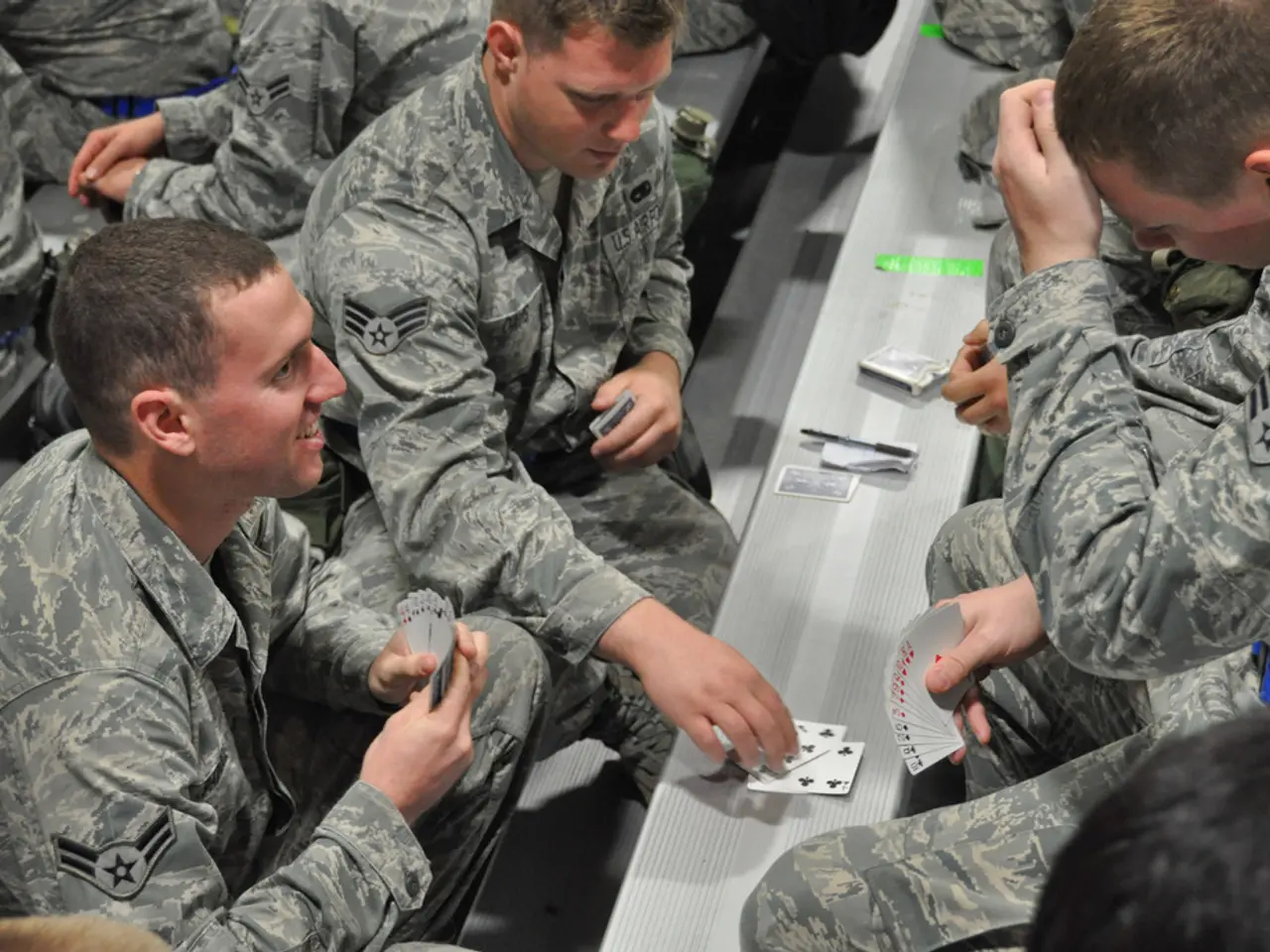Strategic Seating in Poker Games: How Your Location Affects Your Winning Chance!
In the thrilling world of poker, position plays a crucial role in shaping a player's strategy and overall performance. The position of a player, relative to the dealer button, which moves clockwise after each hand, can significantly impact their decisions, hand selection, and strategic adjustments.
Poker positions generally fall into three categories: Early Position (EP), Middle Position (MP), and Late Position (LP). Early Position includes players who act right after the big blind, such as the Under the Gun (UTG) player who acts first pre-flop. Middle Position, often called hijack, lojack, or MP1, includes players sitting between early and late positions. Late Position offers a wealth of information, allowing control over pot size, bluffing with confidence, and stealing blinds from early positions. This includes the dealer button itself, the cutoff (right before the dealer), and sometimes the hijack, depending on the number of players.
Playing smart and letting position work its magic is key to success in poker. Acting last in the betting order, as in Late Position, provides a significant advantage because it allows players to gather more information about their opponents' actions before making a move. This insight allows them to make more informed decisions about whether to bet, call, raise, or fold, often resulting in better outcomes.
On the other hand, players acting early in the betting order are disadvantaged because they have less information about their opponents' actions. The phrase "act first, think later" is often applicable to early position players due to their limited information. In Early Position, it's best to play very tight, raising only with premium hands and folding the rest to avoid costly mistakes.
In Middle Position, a player can expand their hand range but must remain cautious due to the presence of players with potentially stronger hands. It's smart to observe the aggression of early players and adjust playing style accordingly. If early players are aggressive, tighten up, but if they're playing tight, be more aggressive and try to steal pots.
By understanding and mastering their position, players can turn the tables on their opponents and increase their chances of winning. This mastery allows them to gather information, control the pot, and outsmart opponents, making the transition from a casual player to a serious contender.
The impact of poker position on a player's strategy and overall game performance is profound and widely acknowledged among poker professionals. Position at the table dictates the amount of information a player has when making decisions, influencing hand selection, betting behavior, and strategic adjustments.
Neglecting the importance of position often leads to poor hand choices and suboptimal decisions, reducing overall game performance. Mastering position is essential for a winning poker strategy. Players who understand and adapt their ranges, betting patterns, and overall approach to leverage their position at the table will consistently perform better and improve their win rates.
References: [1] Sklansky, D., & Malmuth, M. (2006). The Theory of Poker. Dell Publishing. [2] Harrington, D. (2004). Harrington on Hold'em: Expert Strategy for No-Limit Tournaments. Wiley. [3] Cada, J. (2009). Harrington on Hold'em: Winning Low-Limit Rings. Wiley. [4] Jones, E. (2014). Elements of Poker. D&B Poker. [5] Negreanu, D. (2016). Power Poker: Winning Secrets from the World's Best Players. Penguin Books.
Casino-and-gambling enthusiasts who enjoy casino-games such as poker need to master the concept of position for strategic advantage. In poker games, Early Position (EP) players who act right after the big blind have limited information, making it necessary to play very tight with only premium hands. On the other hand, Late Position offers a significant advantage since acting last allows players to gather more information about their opponents' actions and make informed decisions, often leading to better outcomes.




